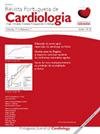Surgical revascularization of chronic coronary total occlusions – A systematic review and meta-analysis
IF 1.6
4区 医学
Q3 CARDIAC & CARDIOVASCULAR SYSTEMS
引用次数: 0
Abstract
Introduction and objectives
Chronic coronary total occlusion (CTO) optimal therapeutic management remains a topic of debate despite its association with adverse clinical outcomes. This study aimed to compare clinical outcomes of patients with CTOs treated with coronary artery bypass graft (CABG) versus medical therapy (MT), assessing the effect of CTO revascularization in patients with multivessel disease undergoing CABG.
Methods
In July 2023, PubMed, Embase, Cochrane, and Web of Science databases were systematically searched for studies comparing CTOs treated with CABG versus MT. A sub-analysis of CABG patients, comparing complete surgical revascularization, including CTO bypass, to CABG without CTO bypass, was performed. A pooled odds ratio meta-analysis assessed four main outcomes: mortality, myocardial infarction (MI), stroke, and major adverse cardiovascular events (MACE). The primary outcome was all-cause mortality.
Results
Ten observational studies (6458 patients) comparing CABG-CTO with MT-CTO showed lower all-cause mortality in the CABG group (OR 0.31, 95% CI 0.24–0.40, p<0.001, I2=36%). Despite heterogeneity, CABG exhibited reduced CV mortality and MACE (OR 0.37, 95% CI 0.24–0.57, p<0.001, I2=59%; OR 0.37, 95% CI 0.15–0.92, p=0.03, I2=80%, respectively). The MI rate was lower in the CABG group (OR 0.41, 95% CI 0.30–0.56, p<0.001, I2=0%). Comparing bypassed to non-bypassed CTO groups (5 studies, 1949 patients), the bypassed-CTO group had considerably lower MACE (OR 0.49, 95% CI 0.30–0.81, p=0.005, I2=44%).
Conclusion
This study suggests a clinical benefit of bypassing a CTO in multivessel disease patients during CABG, with significantly lower MACE. The improved outcomes of CABG over MT further underscore these findings, warranting careful consideration by the Heart Team during their decision-making process.

慢性冠状动脉全闭塞的外科血运重建术——一项系统回顾和荟萃分析。
简介和目的:慢性冠状动脉全闭塞(CTO)的最佳治疗管理仍然是一个有争议的话题,尽管它与不良临床结果有关。本研究旨在比较冠状动脉旁路移植术(CABG)与药物治疗(MT)治疗CTOs患者的临床结果,评估冠状动脉旁路移植术对多血管疾病患者血管重建术的影响。方法:于2023年7月,系统检索PubMed、Embase、Cochrane和Web of Science数据库,比较CABG与MT治疗CTOs的研究。对CABG患者进行亚分析,比较包括CTO搭桥术的完全手术血运重建术与不含CTO搭桥术的CABG。合并优势比荟萃分析评估了四个主要结局:死亡率、心肌梗死(MI)、中风和主要不良心血管事件(MACE)。主要结局为全因死亡率。结果:比较CABG- cto和MT-CTO的10项观察性研究(6458例患者)显示,CABG组的全因死亡率较低(OR 0.31, 95% CI 0.24-0.40, p2=36%)。尽管存在异质性,CABG表现出降低CV死亡率和MACE (OR 0.37, 95% CI 0.24-0.57, p2=59%;OR 0.37, 95% CI 0.15-0.92, p=0.03, I2=80%)。CABG组心肌梗死发生率较低(OR = 0.41, 0.30-0.56, p2=0%)。将旁路组与未旁路CTO组(5项研究,1949例患者)进行比较,旁路CTO组的MACE显著降低(OR 0.49, 95% CI 0.30-0.81, p=0.005, I2=44%)。结论:本研究表明,在CABG期间,多血管疾病患者行CTO旁路治疗具有显著降低MACE的临床益处。CABG优于MT的结果进一步强调了这些发现,值得心脏团队在决策过程中仔细考虑。
本文章由计算机程序翻译,如有差异,请以英文原文为准。
求助全文
约1分钟内获得全文
求助全文
来源期刊

Revista Portuguesa De Cardiologia
CARDIAC & CARDIOVASCULAR SYSTEMS-
CiteScore
2.70
自引率
22.20%
发文量
205
审稿时长
54 days
期刊介绍:
The Portuguese Journal of Cardiology, the official journal of the Portuguese Society of Cardiology, was founded in 1982 with the aim of keeping Portuguese cardiologists informed through the publication of scientific articles on areas such as arrhythmology and electrophysiology, cardiovascular surgery, intensive care, coronary artery disease, cardiovascular imaging, hypertension, heart failure and cardiovascular prevention. The Journal is a monthly publication with high standards of quality in terms of scientific content and production. Since 1999 it has been published in English as well as Portuguese, which has widened its readership abroad. It is distributed to all members of the Portuguese Societies of Cardiology, Internal Medicine, Pneumology and Cardiothoracic Surgery, as well as to leading non-Portuguese cardiologists and to virtually all cardiology societies worldwide. It has been referred in Medline since 1987.
 求助内容:
求助内容: 应助结果提醒方式:
应助结果提醒方式:


